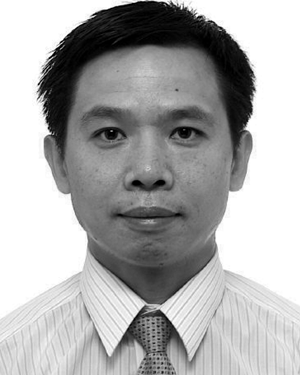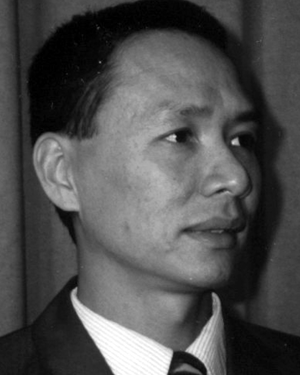Abstract:
For a state-space time-delay system with linearly coupled input and output disturbances, a simultaneous state and disturbance estimation technique is developed. For a no...Show MoreMetadata
Abstract:
For a state-space time-delay system with linearly coupled input and output disturbances, a simultaneous state and disturbance estimation technique is developed. For a nonlinear state-space time-delay system with dependent input and output disturbances, a nonlinear estimator is also proposed to estimate system state and disturbance at the same time. The proposed estimator techniques are applied next to estimate system state and fault signal. Via actuator and/or sensor signal compensation, a simple and efficient fault-tolerant operation can be realized. In the developed design, no limitations and prior knowledge are required on the considered faults. Moreover, identical actuator and/or sensor switches and control gain reconstruction are not necessary. Therefore, the proposed estimation and fault-tolerant scheme is economical and convenient in practical applications. After that, the design techniques are extended to the case of systems with a class of uncoupled input and output faults. Examples and simulations given show excellent signal estimation and fault-tolerant performance.
Published in: IEEE Transactions on Signal Processing ( Volume: 55, Issue: 12, December 2007)

School of Electrical Engineering and Automation, Tianjin University, TJU, Tianjin, China
Zhiwei Gao received the B.E. degree in industrial automation and the M.E. and Ph.D. degrees in systems engineering from Tianjin University, China, in 1987, 1993, and 1996, respectively.
Since 2001, he has been a Full Professor of control theory and control engineering at Tianjin University.
Dr. Gao was awarded the Royal Society Visiting Exchange Project (U.K.) in 2003 and the Alexander von Humboldt Fellowship (Germany) in 2...Show More
Zhiwei Gao received the B.E. degree in industrial automation and the M.E. and Ph.D. degrees in systems engineering from Tianjin University, China, in 1987, 1993, and 1996, respectively.
Since 2001, he has been a Full Professor of control theory and control engineering at Tianjin University.
Dr. Gao was awarded the Royal Society Visiting Exchange Project (U.K.) in 2003 and the Alexander von Humboldt Fellowship (Germany) in 2...View more

Institute for Automatic Control and Complex Systems, University of Duisburg-Essen, Germany
Steven X. Ding received the B.E. degree from Tsinghua University, China, in 1982, the M.E. degree from the Beijing University of Technology, China, in 1985, and the Dr.-Ing. degree in electrical engineering from the Gerhard-Mercator University of Duisburg, Germany, in 1992.
He is currently a Full Professor of control engineering and Chair of the Institute for Automatic Control and Complex Systems (AKS), University of Duisb...Show More
Steven X. Ding received the B.E. degree from Tsinghua University, China, in 1982, the M.E. degree from the Beijing University of Technology, China, in 1985, and the Dr.-Ing. degree in electrical engineering from the Gerhard-Mercator University of Duisburg, Germany, in 1992.
He is currently a Full Professor of control engineering and Chair of the Institute for Automatic Control and Complex Systems (AKS), University of Duisb...View more

School of Electrical Engineering and Automation, Tianjin University, TJU, Tianjin, China
Zhiwei Gao received the B.E. degree in industrial automation and the M.E. and Ph.D. degrees in systems engineering from Tianjin University, China, in 1987, 1993, and 1996, respectively.
Since 2001, he has been a Full Professor of control theory and control engineering at Tianjin University.
Dr. Gao was awarded the Royal Society Visiting Exchange Project (U.K.) in 2003 and the Alexander von Humboldt Fellowship (Germany) in 2004. His research interests include fault diagnosis, fault-tolerant design, system modelling and identification, estimation and filtering, and their applications.
Zhiwei Gao received the B.E. degree in industrial automation and the M.E. and Ph.D. degrees in systems engineering from Tianjin University, China, in 1987, 1993, and 1996, respectively.
Since 2001, he has been a Full Professor of control theory and control engineering at Tianjin University.
Dr. Gao was awarded the Royal Society Visiting Exchange Project (U.K.) in 2003 and the Alexander von Humboldt Fellowship (Germany) in 2004. His research interests include fault diagnosis, fault-tolerant design, system modelling and identification, estimation and filtering, and their applications.View more

Institute for Automatic Control and Complex Systems, University of Duisburg-Essen, Germany
Steven X. Ding received the B.E. degree from Tsinghua University, China, in 1982, the M.E. degree from the Beijing University of Technology, China, in 1985, and the Dr.-Ing. degree in electrical engineering from the Gerhard-Mercator University of Duisburg, Germany, in 1992.
He is currently a Full Professor of control engineering and Chair of the Institute for Automatic Control and Complex Systems (AKS), University of Duisburg-Essen, Germany. His research interests include complex systems control, model-based fault diagnosis, networked control systems, and embedded and distributed systems.
Steven X. Ding received the B.E. degree from Tsinghua University, China, in 1982, the M.E. degree from the Beijing University of Technology, China, in 1985, and the Dr.-Ing. degree in electrical engineering from the Gerhard-Mercator University of Duisburg, Germany, in 1992.
He is currently a Full Professor of control engineering and Chair of the Institute for Automatic Control and Complex Systems (AKS), University of Duisburg-Essen, Germany. His research interests include complex systems control, model-based fault diagnosis, networked control systems, and embedded and distributed systems.View more


